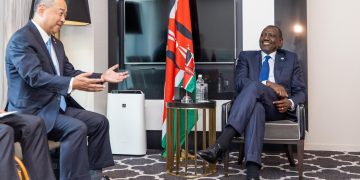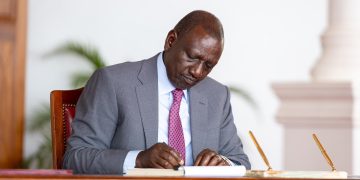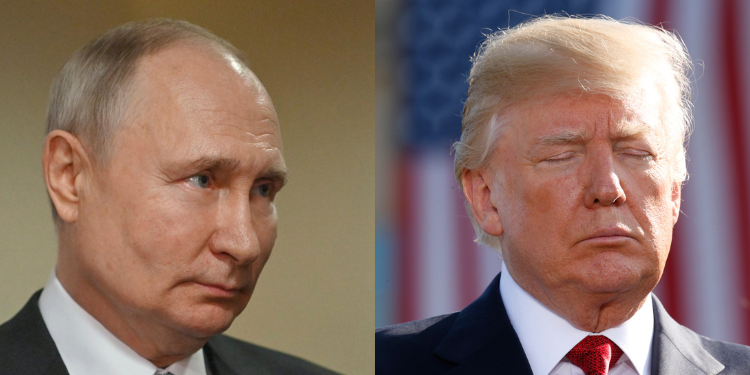The United States, through U.S. Treasury Secretary Scott Bessent, has announced a hardline approach toward countries purchasing Russian oil, threatening even more severe secondary sanctions and tariffs to intensify pressure on Moscow economically.
Trump’s secondary tariffs and sanctions
The United States has long criticized countries that maintain trade relations with Russia, arguing that such engagements undermine international sanctions and prolong the conflict in Ukraine.
President Trump has threatened to impose secondary tariffs and taxes on imports from countries that buy Russian oil, reaching up to 100%.
Bessent has warned that countries like India and China, major buyers of Russian oil, could face significant tariffs, potentially up to 100% or higher, if they continue purchasing sanctioned Russian oil.
In July 2025, Bessent had earlier cautioned Chinese officials during U.S.-China trade talks in Stockholm that continued purchases could trigger tariffs authorized by U.S. Congress legislation.
The primary targets of these sanctions are nations like China, India, and Brazil, which collectively account for a significant portion of Russia’s oil exports.
Implementation and Impact
President Trump’s announcement to restore tariffs and sanctions on countries importing Russian oil, potentially up to 100%, marks a significant escalation in U.S. economic measures against Russia.
However, the practical execution of such drastic measures carries notable complexities. Imposing a 100% tariff could create significant disruptions in global oil markets, potentially leading to price spikes and supply shortages that affect both consumers and industries worldwide.
Moreover, there is a risk of straining diplomatic relations, especially with major economies that rely on Russian oil to meet domestic energy demands.
India’s recent behaviour exemplifies these challenges: despite facing potential U.S. tariffs, the country has continued importing discounted Russian oil, demonstrating how some nations might navigate around sanctions.
Similarly, the European Union has been urged to fully phase out Russian oil imports, though some member states, like Hungary and Slovakia, still maintain limited reliance on Russian energy.
This uneven compliance highlights the difficulty of enforcing uniform sanctions and achieving the desired pressure on Russia.
Also Read: Millions Affected as Microsoft Hit by Cable Cuts
While the proposed tariffs could theoretically curb Russia’s energy revenue, their effectiveness depends heavily on international cooperation and the willingness of targeted countries to alter their energy procurement strategies.
Trump’s strategic goals
Beyond economic measures, President Trump’s approach seeks a comprehensive strategy to isolate Russia both diplomatically and economically.
Trump aims to encourage allied nations to reduce trade with Russia and fully support Ukraine’s sovereignty, aiming to limit Moscow’s financial and geopolitical leverage.
By combining tariffs, diplomatic pressure, and legislative backing through initiatives like the “Sanctioning Russia Act of 2025,” the goal is to maximize the impact of U.S. policy while compelling Russia to consider meaningful negotiations for peace in Ukraine.
Response from countries targeted by Trump
As the largest importer of Russian oil, China has consistently defended its energy trade with Russia.
Chinese officials assert that their oil purchases are based on national interests and are lawful under international law.
The Chinese Foreign Ministry emphasized that oil purchases would continue to be determined by China’s internal policies and energy needs.
India has also resisted U.S. pressure to cease importing Russian oil.
Finance Minister Nirmala Sitharaman confirmed that India would continue its energy trade with Russia, citing economic benefits and the need to meet national energy requirements.
Also Read: Trump Targets Russia, China with Order on Illegal Detention of Americans
Despite facing U.S. tariffs, India maintains that its actions help stabilize global oil markets and that sourcing decisions are based on what best meets national needs.
Brazil has similarly rejected U.S. demands to halt its Russian oil imports. Special Advisor to the President Celso Amorim stated that Brazil opposes economic sanctions in any case, except when authorized by the United Nations Security Council.
He emphasized that Brazil would not accept conditions attached to its energy policy in exchange for a tariff deal with the U.S. and opposes using economic measures for geopolitical purposes.
Follow our WhatsApp Channel and X Account for real-time news updates.
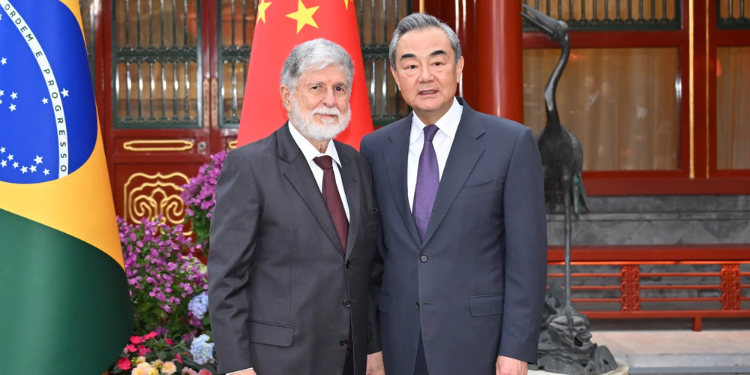






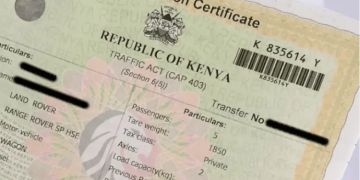

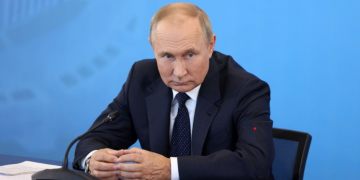













































![Ntv Anchors Bring Village To Standstill With Heartwarming Birthday Party [Photos] A Photo Of Ntv Swahili Anchors Lofty Matambo And Fridah Mwaka During Their Birthday Celebration In Kilifi County Photo/ Lofty Matambo And Fridah Mwaka]( https://thekenyatimescdn-ese7d3e7ghdnbfa9.z01.azurefd.net/prodimages/uploads/2025/09/A-photo-of-NTV-Swahili-anchors-Lofty-Matambo-and-Fridah-Mwaka-during-their-birthday-celebration-in-Kilifi-County-PHOTO-Lofty-Matambo-and-Fridah-Mwaka-360x180.png)













